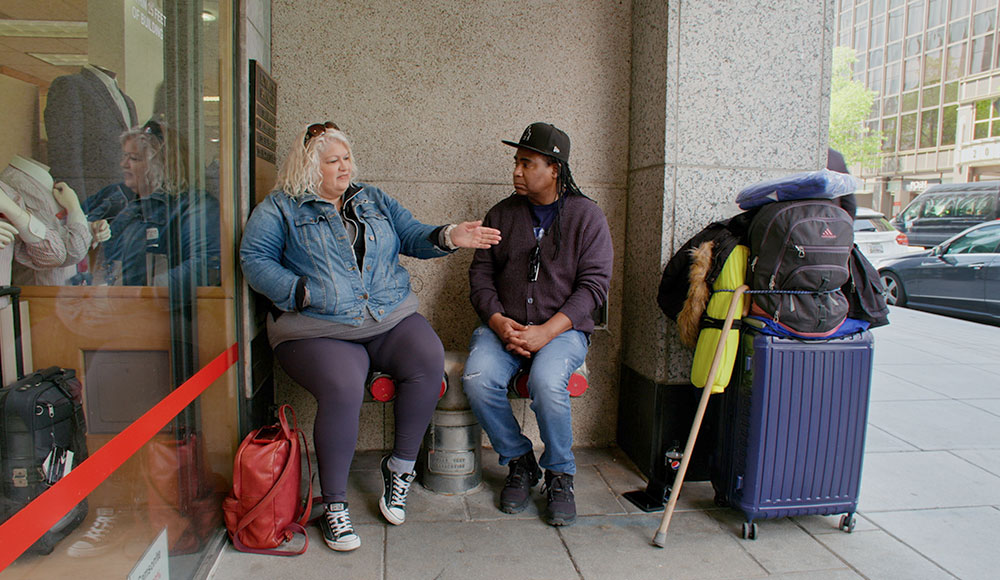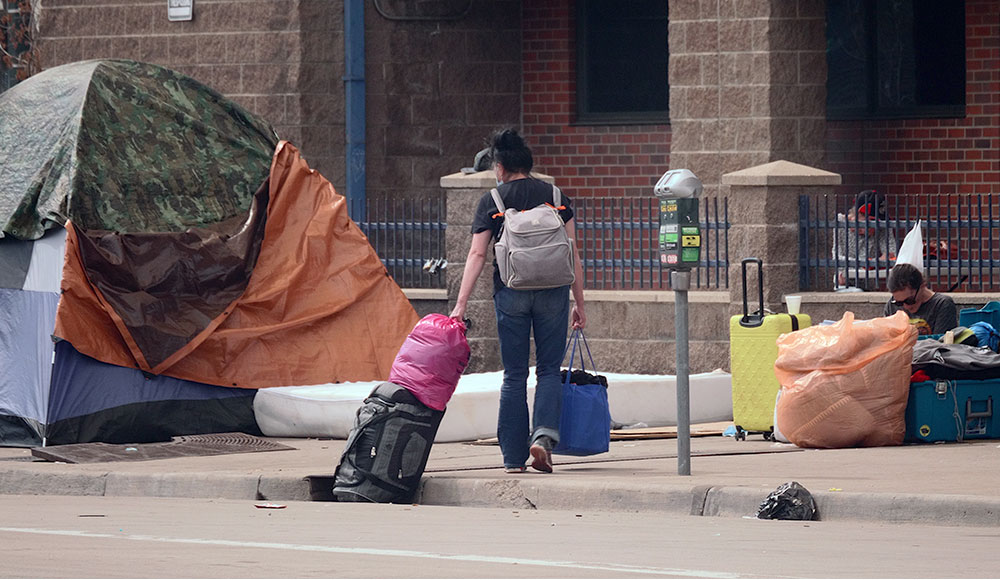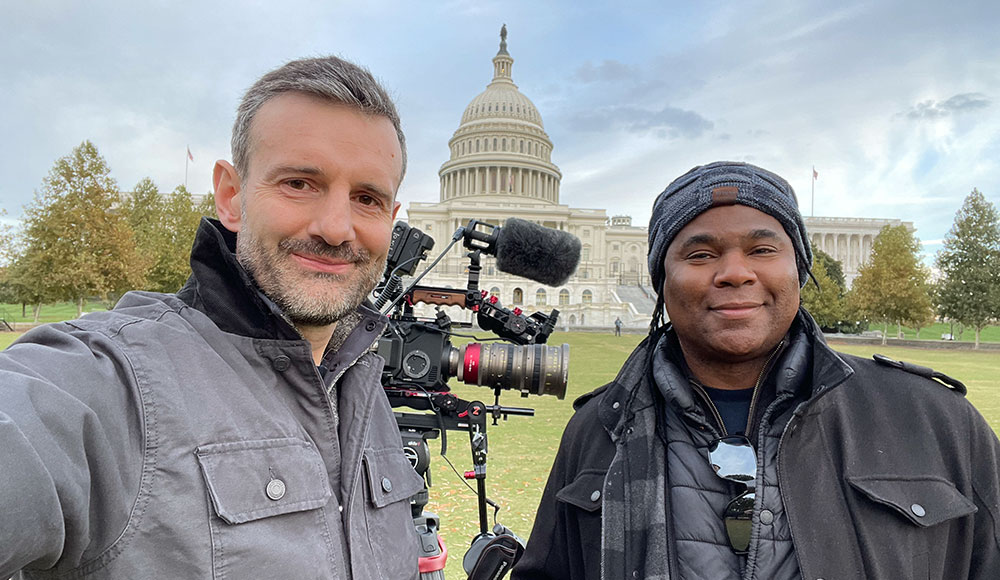In 2015, Don Sawyer filmed a homeless encampment located underneath a bridge in his native Indianapolis for his documentary Under the Bridge: The Criminalization of Homelessness.
Sawyer had lived in L.A. for 20 years, where he regularly went to Skid Row to hand out food and clothes. In Indianapolis, he interviewed city officials, business owners, shelter operators and activists who debated over the fate of the tent city. Eventually, the area was evacuated along with its 76 inhabitants, some of whom later died.
While the director’s first movie highlighted the complexities of curbing homelessness (public stigma, competing approaches, shelters with too many restrictions, etc.) in one neighborhood, his second, Beyond the Bridge: A Solution to Homelessness, attempts to give a nationwide answer to the crisis.
“The first film is about what the problem is,” Sawyer says. “The second film is about solutions.”
Sawyer and cinematographer-editor Tim Hashko, who co-founded the film production company A Bigger Vision Films, are touring their new documentary as part of a multi-city “social impact campaign” that includes screenings, panel discussions and community activities.

“We would rather do an impact campaign than a festival run,” Sawyer says. “We’re trying to have an impact in communities with the film. We partner with people on the ground and they form local steering committees. And the local steering committees know far more than we do about their community. So that’s half of the impact. We’re not just bringing this film to your town so we can get pats on the back.”
For the film, Sawyer and Hashko traveled over 40,000 miles to 12 cities to speak with more unhoused people, politicians and housing experts, including former Missouri congresswoman Cori Bush and UCLA clinical psychologist Sam Tsemberis. The filmmakers found that among these cities, two had the greatest successes in reducing homelessness: Milwaukee and Houston. In fact, Milwaukee was recently recognized as having the lowest unsheltered homeless population of any community per capita in the nation.
Both have adopted the Housing First model developed by Tsemberis (voted one of Time’s most influential people of 2024), who founded Pathways to Housing in New York in the early ’90s. His Housing First model is a research-based principle that advocates for immediate and stable housing with no strings attached.
“Milwaukee and Houston had different configurations, but they did it the same way,” Sawyer says. “They both depended on forming one homeless response system set upon a foundation of housing with robust supportive services versus putting your homeless response system upon the foundation of shelters. Too many places are saying that the conversation is about shelters. It’s not. It’s about homelessness. And you only solve homelessness with housing.”
“The other thing that they had in common is they collaborated with stakeholders,” Hashko adds. “Business leaders, sheriffs, cops, judges, religious organizations, healthcare and education. They all got together within one system and coordinated it to take people from homeless to housing.”

Local nonprofit Housing Matters hosts the Santa Cruz screening, followed by a talk and Q&A with Sawyer and Hashko, as well as Mace Crowbear, Chris Field, Jessica Sheiner, Santa Cruz County Supervisor Justin Cummings, Santa Cruz vice mayor Shebreh Kalantari-Johnson and former mayor Don Lane.
“People from business leaders to elected officials to extreme MAGA folks to extreme left-wing folks come up to us and thank us for showing them this hopeful message,” says Hashko about the documentary. “But the most rewarding thing is people who have a lived experience. I think I was in Washington, DC, when a woman who was currently experiencing homelessness said, ‘Thank you for seeing me.’ Homelessness is a subject that, for whatever reason, Americans don’t really want to talk about or touch or smell or understand. We want to show the public that homeless people are normal people like all of us who just fell on some hard times. We want to bring humanity back to those folks.”
“Homelessness is solvable,” Sawyer adds. “It is not a broken-people problem. It’s a broken-system problem. The system itself is not set up to end homelessness. Officials have to intervene into the system that was created before anybody who’s working in it now. That’s the main thing we want people to understand. The hard part is curtailing the system. The easy part is fixing it.”
Screening is 6pm on Feb. 13 at the Rio Theatre, 1205 Soquel Ave., Santa Cruz. Tickets: $12. For more information, visit ASolutionToHomelessness.com.











